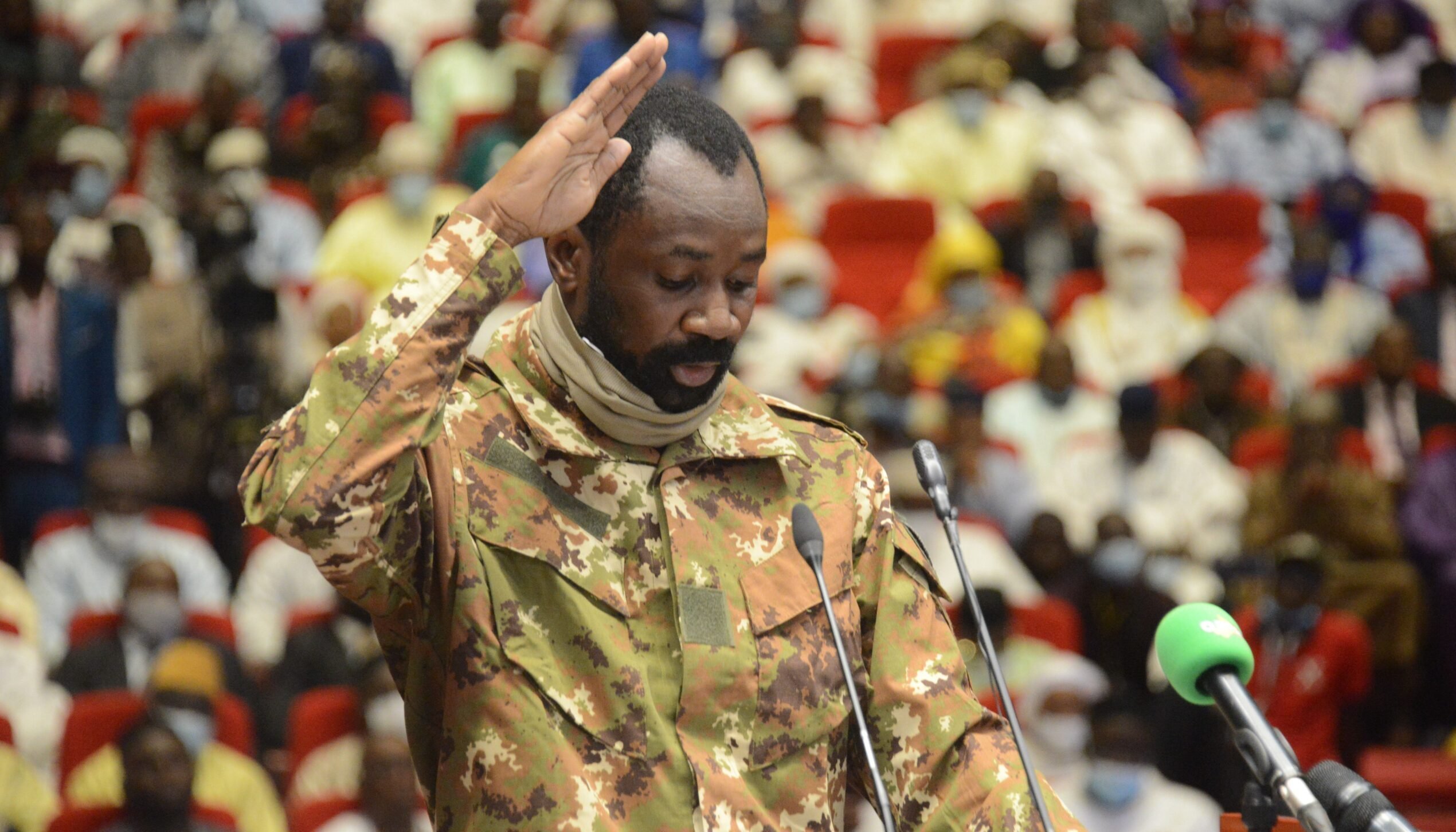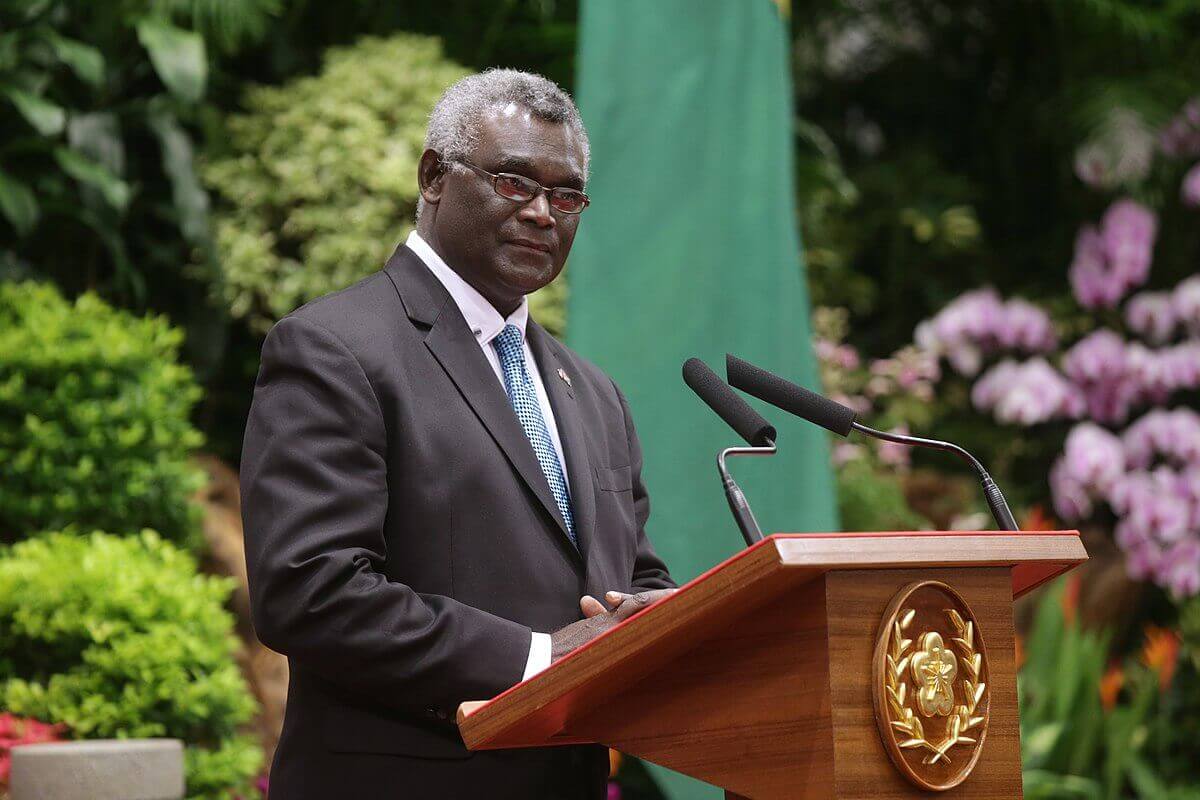South Asia
The Sri Lankan Cabinet of Ministers approved the 21st amendment to the constitution, which would diminish the powers of the president. It reverses the 20A amendment that was brought in by incumbent President Gotabaya Rajapaksa that provided him with wide-ranging powers over the Cabinet. [Colombo Page]
Pakistani Finance Minister Miftah Ismail said he is “very hopeful” about securing an aid deal with the International Monetary Fund in the coming days. This comes as the government conceded to the organisation’s demands of rescinding fuel subsidies, which resulted in widespread protests against the rising inflation in the country. [Geo.tv]
Central Asia and the Caucasus
Uzbek President Shavkat Mirziyoyev on Monday proposed several amendments to the constitution, including altering the country’s election limit laws from two five-year terms to three. Critics have accused Mirziyoyev of taking steps to further his grip on power. [RFE/RL]
Armenian Prime Minister Nikol Pashinyan met with his Russian counterpart Mikhail Mishustin on the sidelines of the Eurasian Intergovernmental Council in Minsk on Monday. Mishustin reaffirmed Russia’s commitment to work with Armenia towards unblocking transport networks in the South Caucasus to further peace talks with Azerbaijan. [Public Radio of Armenia]
East and Southeast Asia
Outgoing Hong Kong Chief Executive Carrie Lam said she is “very optimistic about Hong Kong’s future development” because the financial hub is now “more stable than ever before” under the “one country, two systems” policy. Commending mainland China’s support to her administration, Lam said, “The Hong Kong people do not want to see the erosion of the principle of ‘one country, two systems’ and they value very much the support from the central government. Thus, it makes it easier to put in place some of the measures that have been introduced, such as the electoral reforms.” Lam’s successor, John Lee Ka-chiu, is set to take over on July 1. [ECNS]
China carried out anti-missile defence tests on Sunday, the country’s defence ministry announced yesterday. It added that the tests were “mid-range, land-based missile interceptions” that were “defensive in nature” and “not targeted against any country.” The latest missile test comes only three days after Beijing inaugurated its third and most powerful aircraft carrier to date, the Fujian. [Taiwan News]
Europe
Thousands took to the streets in Georgia to demand European Union membership and call on the government to “prove [its] commitment” to citizens’ “European choice” and “Western values.” Georgia was previously a member of the Soviet Union. [Euronews]
The Taliban released five British citizens after the United Kingdom reached an agreement with the group. The Taliban’s spokesperson, Zabihullah Mujahid, said the British nationals had been arrested six months ago for “violating the laws and traditions of the Afghan people.” [Al Jazeera]
About one-third of the 27 countries in the European Union (EU) want to begin deliberations on a seventh package of sanctions against Russia. However, Germany and a few other members prefer to implement existing sanctions instead of commencing a new process of securing unanimous approval for another round of sanctions. Additionally, Poland, Sweden, and other Nordic and eastern members are calling for more military aid to Ukraine. The EU has already given $2.1 billion from its European Peace Facility. [Reuters]
Latin America and the Caribbean
Cuba’s ambassador to the United Nations, Pedro Luis Pedroso, on Monday reaffirmed Cuba’s support for the “self-determination and independence of Puerto Rico,” while presenting a co-sponsored resolution that recognises its “unmistakable identity” at the UN Special Committee on Decolonization. Cuba also condemned the United States for its ongoing colonisation and subjugation of the country. The resolution was co-sponsored by Antigua and Barbuda, Bolivia, Nicaragua, Venezuela, Syria, and Russia, and rejected Washington’s stance that the issue is an internal matter. [Prensa Latina]
The European Union’s (EU) ambassador to Asunción, Javier García de Viedma, on Monday expressed concern over the “possibility” and “risk” of Paraguay becoming a narco-state if “necessary and timely measures are not taken.” He said that while “Paraguay is becoming a transit point (for drugs),” there are “means and will” to fight organised crime in the country. In this respect, he pointed to the Latin America, Caribbean and EU Cooperation Program on Drug Policies (Copolad) and the Program of Assistance against Transnational Organized Crime (PAcCTO) as examples of how the EU stands ready to assist. [Merco Press]

Middle East and North Africa (MENA)
At least 13 people, including 11 soldiers, were killed in an attack by ISIS terrorists in Syria’s Raqqa province on Monday. Raqqa was the capital of ISIS’ so-called caliphate from 2014 to 2019, when it was defeated. [Rudaw]
The International Atomic Energy Agency (IAEA) reported on Monday that Iran is seeking to further uranium enrichment as Tehran plans to install two advanced IR-6 centrifuges at the Fordow nuclear plant. The move came weeks after Iran announced that it was installing two IR-6 centrifuges at Natanz in retaliation to an IAEA resolution condemning the Islamic Republic’s nuclear advancements. [Reuters]
North America
Canadian Minister of Foreign Affairs Mélanie Joly stated on Monday that a new special envoy on the Rohingya and Myanmar crises will soon be appointed to help forge durable solutions in Naypyidaw and address the longer-term needs of refugees and other crisis-affected populations, including in Bangladesh. “We will pursue sustainable solutions to ensure that the needs of impacted communities, including the Rohingya, are met and that their voices are heard,” she added. [Global Affairs Canada]
On Monday, United States (US) Secretary of Treasury Janet Yellen revealed that the US is holding discussions with Canada and its allies about imposing a price cap on Russian oil that would help to “enhance and strengthen recent and proposed energy restrictions… and depress [Russian President Vladimir] Putin’s revenues, while allowing more oil supply to reach the global market.” She also said that it would not affect low-income and developing countries that are “struggling” with high costs of food and energy. [Reuters]
Oceania
Australia will donate $50 million in emergency aid to Sri Lanka to help the island nation tide over its worst economic crisis. “Australia has a close and long-standing relationship with Sri Lanka. Not only do we want to help the people of Sri Lanka in its time of need, there are also deeper consequences for the region if this crisis continues,” said Foreign Minister Penny Wong. [Australian Financial Review]
Solomon Islands Prime Minister Manasseh Sogavare reassured Australia that the island nation will not host a Chinese military base on its territory. Sogavare told Australian Foreign Minister Penny Wong during her visit to the country that Australia remains the Solomon Islands’ first partner of choice in matters of security and development. [Sky News]
Sub-Saharan Africa
Malian junta leader Colonel Assimi Goïta has called for three days of national mourning after over 130 civilians were killed in suspected jihadist violence over the weekend. The junta has blamed Fulani religious leader Amadou Koufa’s armed group, the Macina Katiba, for the massacre in the Diallassagou and Bankass regions. [EWN]
On Monday, Kenyan President Uhuru Kenyatta convened the 3rd East African Community Heads of State Conclave on Inter-Congolese Dialogue of the Nairobi Process, with the participation of leaders from Rwanda, the Democratic Republic of Congo (DRC), Uganda, and Burundi. The heads of state called for an unconditional ceasefire and immediate cessation of hostilities in the DRC, and agreed on the deployment of a joint regional force to “stabilise and secure the peace in the DRC” in cooperation with the Congolese forces, as well as to facilitate the “disarmament and demobilisation process.” Members also condemned “offensive language, hate speech, threats of genocide, and other politically inciting language” targeting Rwandans in DRC, and charted a framework to “promote peace, stability and development in the eastern DRC and the greater east African region.” KT Press]

